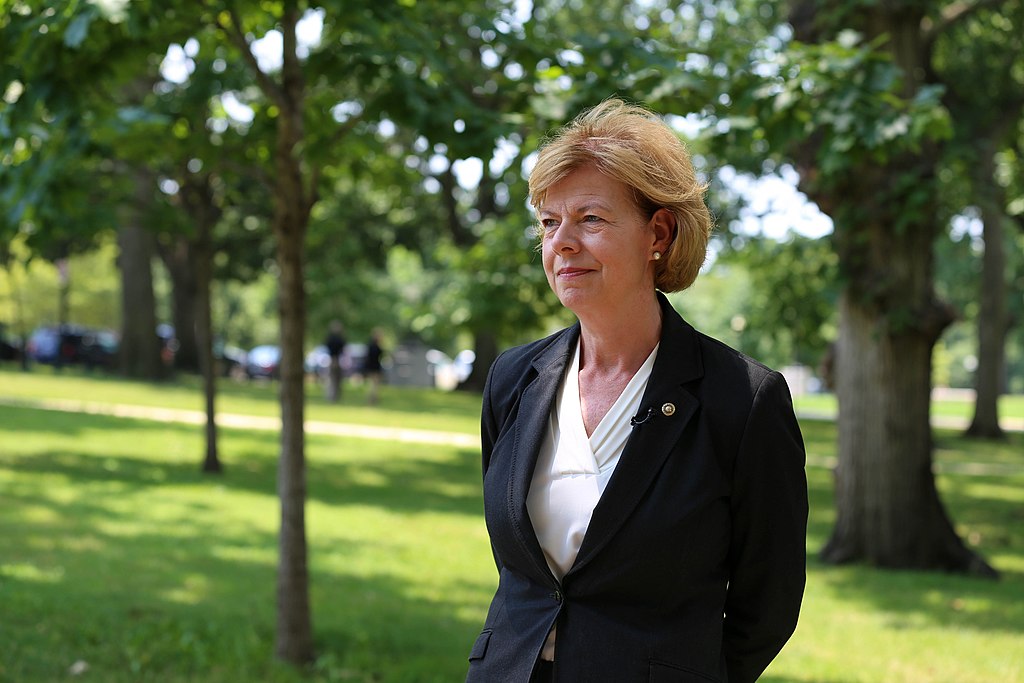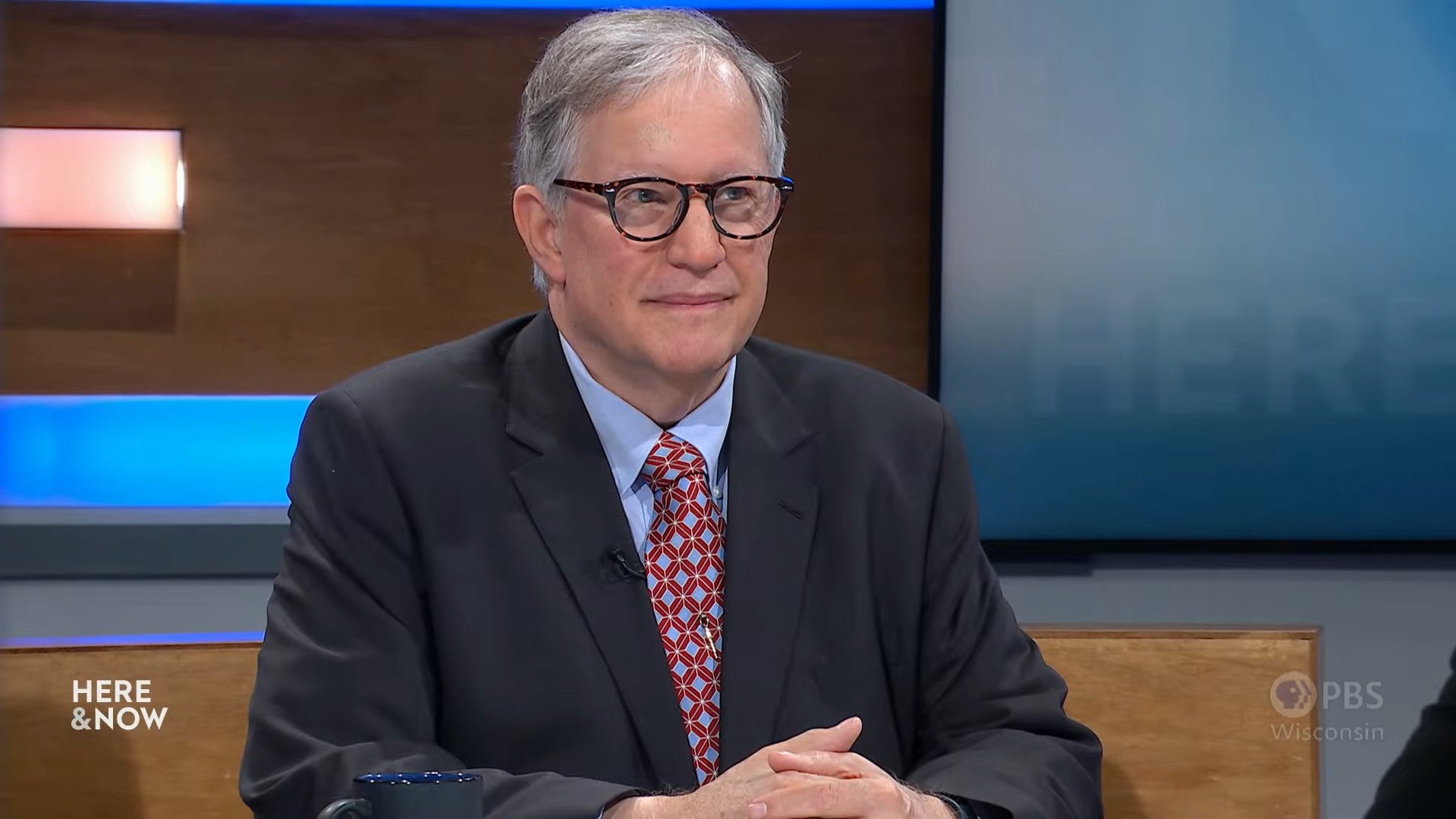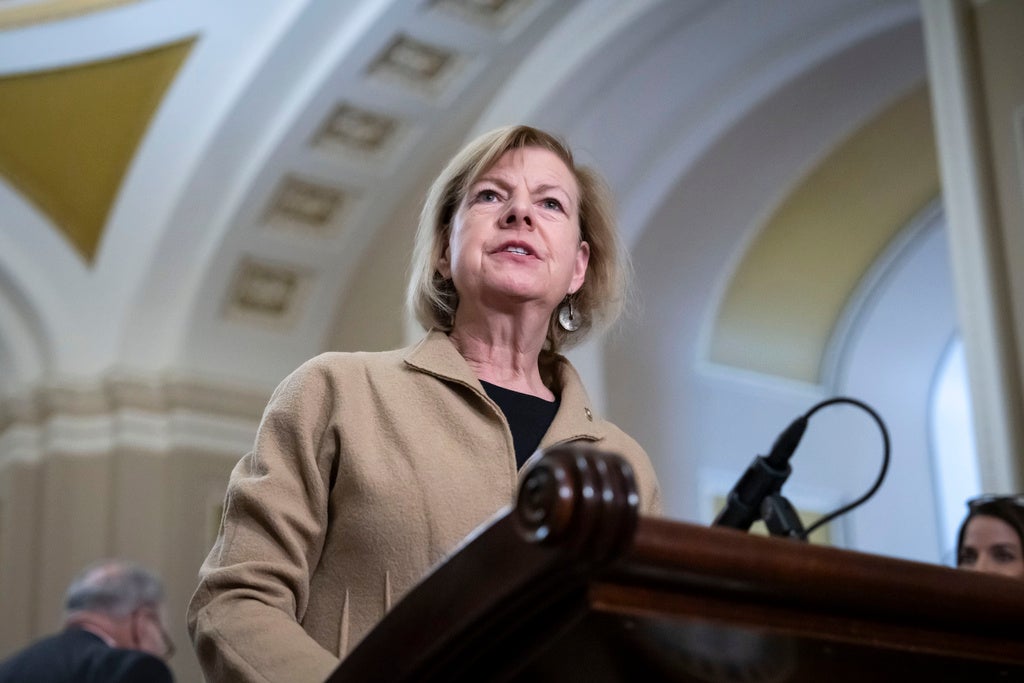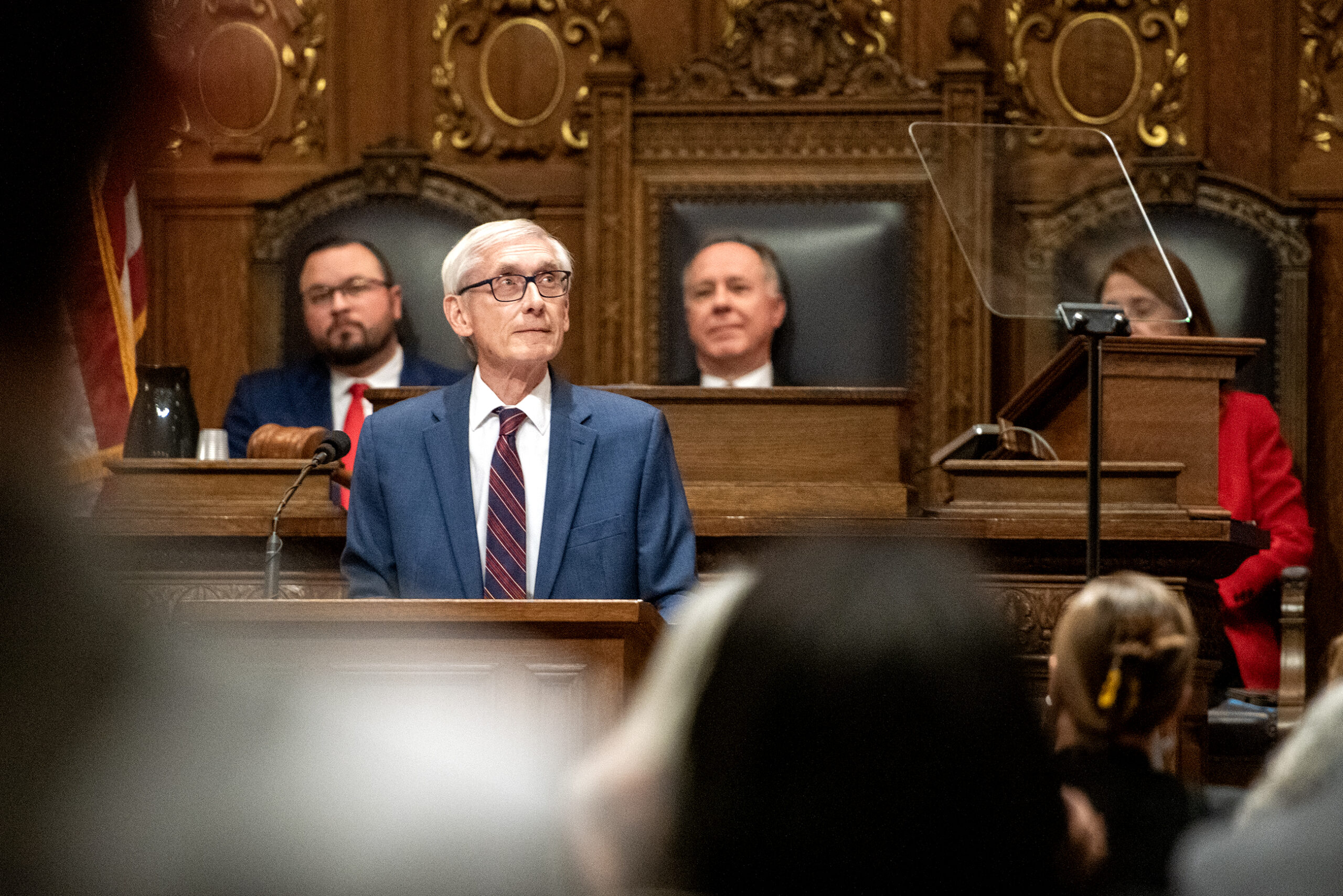With Election Day less than six months away, multiple new polls show Democratic incumbent Tammy Baldwin leading Republican challenger Eric Hovde in the race for Wisconsin’s U.S. Senate seat.
That includes one survey that showed a double-digit lead for Baldwin, who has led among registered voters in every poll conducted since Hovde entered the race.
A Quinnipiac University Poll released Wednesday shows Baldwin ahead of Hovde among registered voters by 12 percentage points, with 54 percent saying they’d vote for Baldwin and 42 percent saying they’d vote for Hovde.
News with a little more humanity
WPR’s “Wisconsin Today” newsletter keeps you connected to the state you love without feeling overwhelmed. No paywall. No agenda. No corporate filter.
The poll surveyed 1,457 registered voters between May 2 and May 6. It has a margin of error of 2.6 percentage points.
Among those surveyd, 49 percent had a favorable opinion of Baldwin, while 35 percent had an unfavorable opinion of her. Hovde’s numbers were slightly underwater with 23 percent of voters having a favorable opinion of him and 25 percent saying they had an unfavorable opinion. Half of the respondents in the poll said they haven’t heard enough about Hovde to form an opinion, while 15 percent said they hadn’t heard enough about Baldwin.

Cook Political Report Senate and Governors Editor Jessica Taylor told WPR she thinks Baldwin currently has the advantage in Wisconsin’s Senate race, but she said the Quinnipiac results appear to be an outlier.
“I don’t think there’s a Democrat or a Republican in Wisconsin or in D.C. that thinks that this is going to be a 12-point race one way or the other,” Taylor said. “Even in 2018, when Baldwin was running against a very weak candidate in a very favorable Democratic year, she didn’t win by 12 points.”
In 2018, Baldwin defeated former Republican state Sen. Leah Vukmir by nearly 11 percentage points.
While the Quinnipiac poll may be an outlier in terms of its margin, Baldwin has had an edge over Hovde among registered voters in all other polling in the race this year.
A poll conducted by The Hill newspaper and Emerson College between April 25 and April 29 shows Baldwin Leading Hovde 46-43, with 11 percent of voters reporting they were undecided.
A CBS News survey of registered Wisconsin voters conducted the week before found Baldwin leading Hovde 48-41 percent. Eight percent of respondents said they weren’t sure who they’d vote for and three percent said they would pick someone else.
Finally, a Marquette University Law School poll conducted in early April found Baldwin ahead of Hovde by 5 percentage points among registered voters, which included “leaners,” or voters who initially said they weren’t sure who they would support.
Among likely voters — those with stronger party affiliation — Marquette’s poll found the race was tied 50-50. Marquette has historically put more emphasis on its findings among registered voters at this stage of the election cycle, shifting its focus to likely voters as Election Day nears.
Hovde and Baldwin are taking notably different approaches to their campaigns, said Taylor, with Hovde focusing on national issues like the economy and the southern border, which have topped the list of concerns in national and Wisconsin polling. His campaign is also working to tie Baldwin to the unpopularity of Democratic President Joe Biden, with Hovde ads repeatedly claiming that the progressive Senator has sided “with Joe Biden 95.5% of the time.”
“If Biden loses this state, it could be very hard for Tammy Baldwin to outperform Biden,” Taylor said. “Democrats I’ve talked to say, ‘Absolutely, her biggest weakness is Biden atop the ticket.’”
But Taylor said Baldwin is a “very savvy campaigner” and Republicans have told her “you underestimate Tammy Baldwin at your own peril.”
“She’s very good at constituent services. She goes into more of the rural areas of the state, and she doesn’t have to win there, but she doesn’t lose by as much,” Taylor said. “And then when you add in the more red parts of the state with the more liberal places like Milwaukee and Madison, that can make a difference in that type of race.”
Aside from Biden’s unpopularity, Taylor said, Hovde’s wealth, his ability to self-fund his campaign along with having no major GOP primary opponents are significant boosts for the Republican business executive.
Alternately, she said national Republicans have told her they would like to see “a more disciplined campaign” from Hovde. Taylor said Democrats have seized upon Hovde’s past comments, including one about nursing home residents not being “at a point to vote” because of limited life expectancy. During his unsuccessful senate run in 2012, Hovde said people who are obese should have to pay more for health care.
“He recorded a three-minute video on social media to respond to nursing home comments,” Taylor said. “You don’t want to keep the story alive. He did that.”
The matchup between Baldwin and Hovde could end up being key for Republicans’ hopes of winning back control of the U.S. Senate, but Taylor said races in Montana and Ohio “by the numbers” present a better opportunity for the GOP.
“I think we just ultimately don’t know at this point, what the numbers are going to look like come this fall,” Taylor said.
Wisconsin Public Radio, © Copyright 2025, Board of Regents of the University of Wisconsin System and Wisconsin Educational Communications Board.







